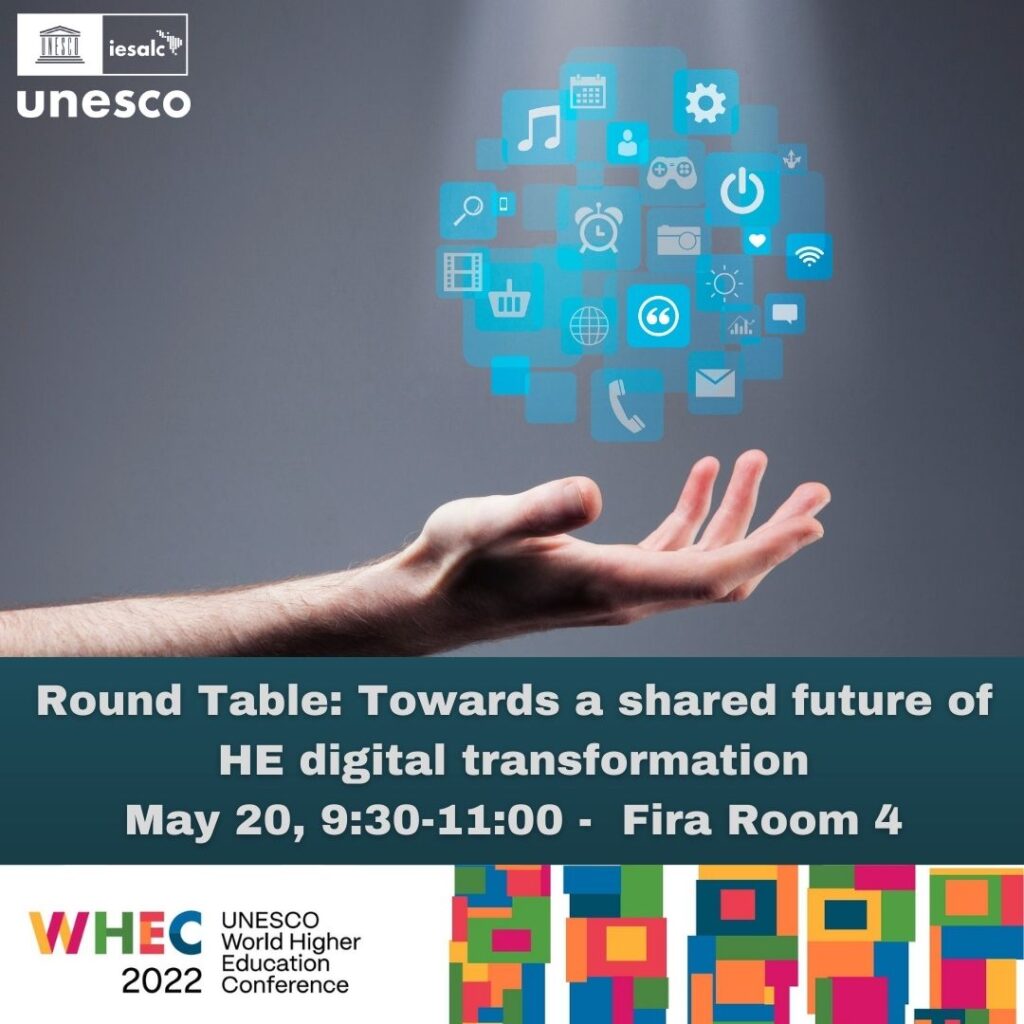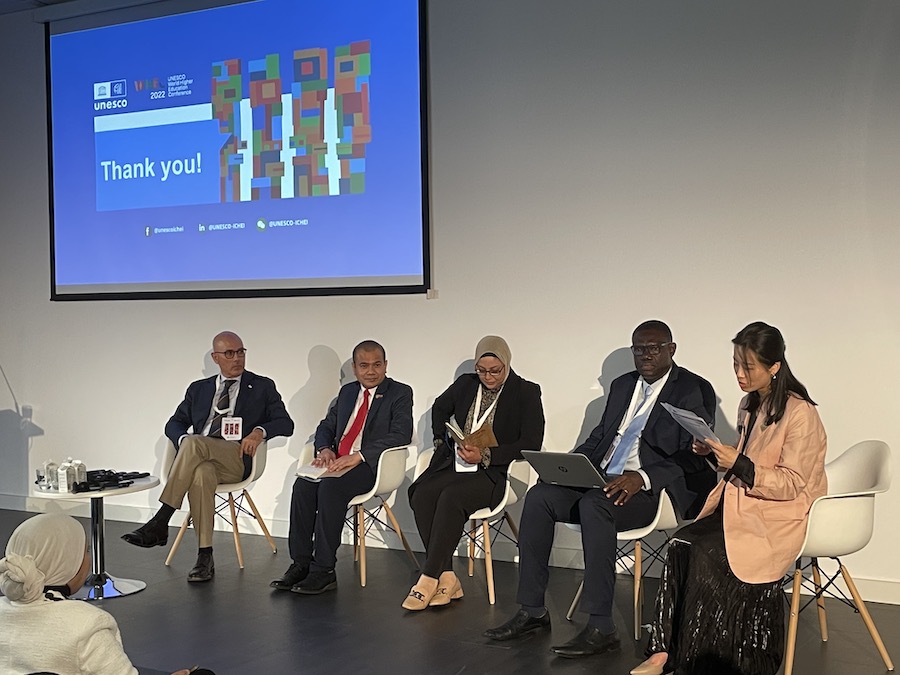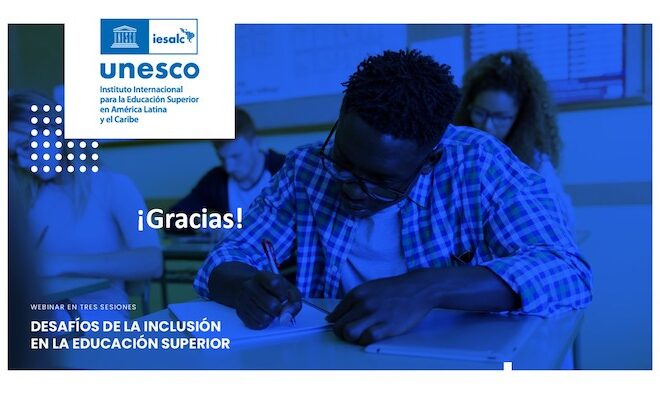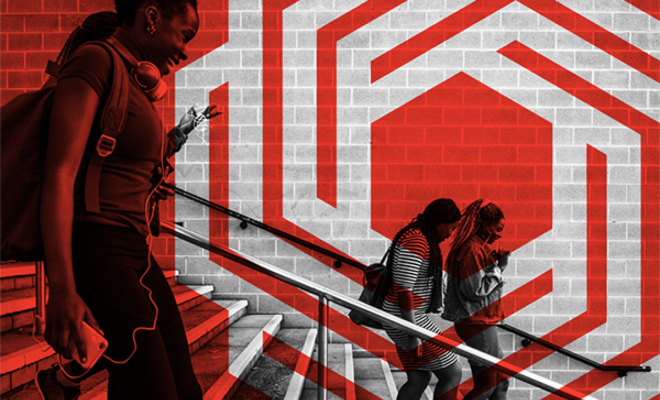Towards a shared future of higher education digital transformation

Participants: LI Ming, Director of UNESCO-ICHEI; Mona Abdel-Al, Director of Education Strategy Administration, Ain Shams University, Egypt; David Atchoarena, Director of UIL; Lesley White, Huawei Europe; Francesc Pedró, Director of UNESCO IESALC; Abdoulaye Salifou, Regional Advisor for Higher Education and ICT, UNESCO Regional Office in Abuja; Ismi Arif Ismail, Deputy Deputy Vice-Chancellor (Academic and International) Universiti Putra Malaysia; and Dalia Ahmed Yusuf, Director of central eLearning unit – Education Strategy Administration at Ain Shams University.

In the event was announced a new partnership with the International Centre for Higher Education Innovation under the auspices of UNESCO-ICHEI, located in Shenzhen, China, and UNESCO IESALC to work on joint policy research on higher education digital transformation in the Latin America and the Caribbean (LAC) region.
Specifically, through casting trends in the higher education development and offering highly contextualized policy proposals, this research will enhance the capacity of national policymakers and institutional leaders to improve and strengthen the provision of quality higher education.
Keypoints
- Digital technologies -such as big data, artificial intelligence and 5G- have brought profound changes to the work and life of humankind.
- Digitalization set new requirements of knowledge, skills, capabilities for labor force. HE needs to respond to this and also to the ways knowledge is created, assessed, disseminated, validated and used.
- Information is more accessible, opening a new and promising landscape for education
- UNESCO ICHEI has started a series of projects, including the international institute of on line education, smart classrooms, and research series to support HE digital transformation in developing countries.
- There is a need to develop a more flexible, agile, and critical thinking workforce, able to cope with changing working environment
- HEI must shift from the fixed time and processes of industrial era to adopt the fixed outcomes favored by information economies.
- Continue building strong, reliable and sustainable networks and alliances to create synergies.
- Digital transformation has become a vital issue for the future of development of HE, increasingly linked to he application of an information and communication technology.
- HEI It should be as inclusive as possible, not forgetting that they are not only education institutions, they are important social institutions.
- Key to the digital transformation are teacher’s capacities: for teaching, management and research. This faces many challenges in terms of funding, infrastructure and policies.
- The International Institute of Online Education (IIOE) in December 2019 focusing on the capacity building of teachers. Services supported teachers from 135 countries and 12000 teachers, on line education platform, promoting multilateral education exchange
- Is a priority to establish a university—industry cooperation, from digital software to smart classrooms. In only 2 years the IIOE has 36 member institutions, 22 partner enterprises in 30 countries.
- The issue should not be the conversation about technology, but the possibility and the opportunity to change education dramatically.
Related posts
RELATED ITEMS








